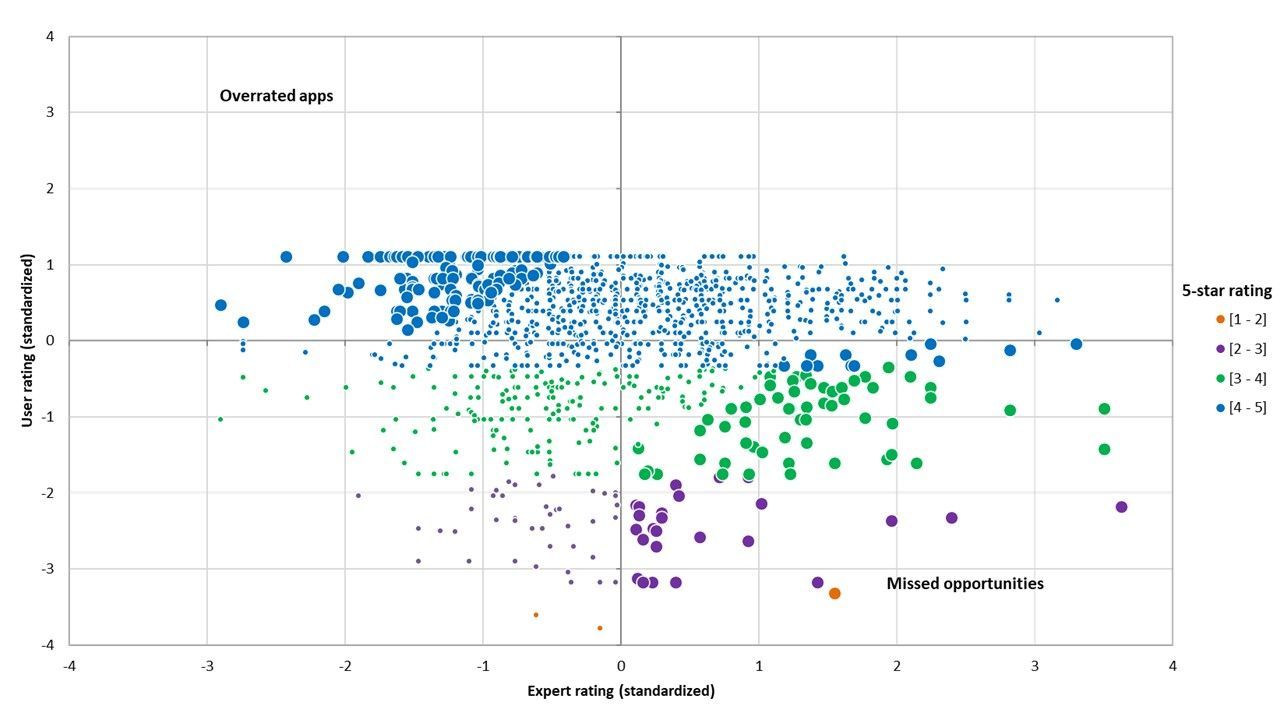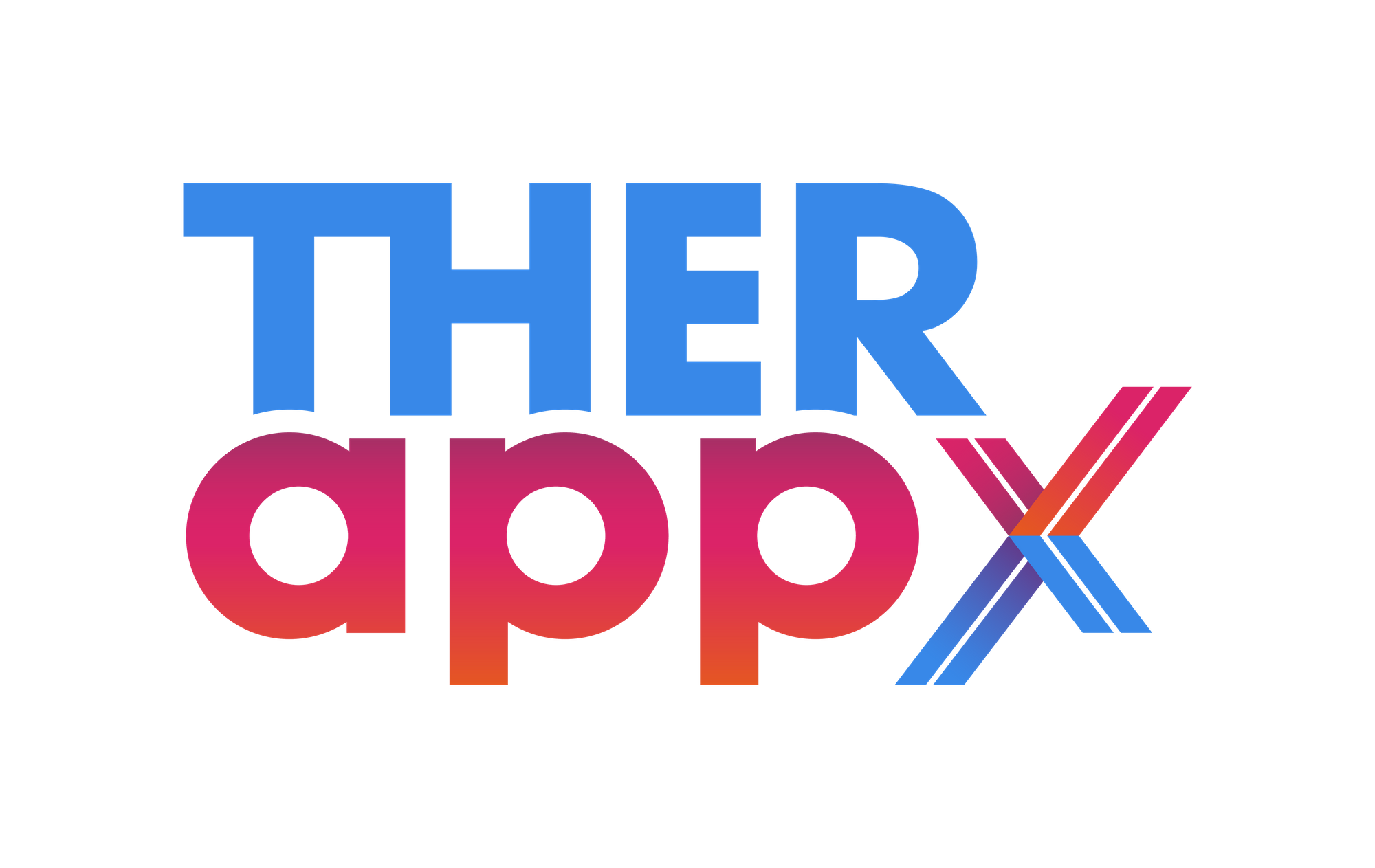Expert ratings uncover missed opportunities in the health apps market
Have you ever looked for a health app? How did you do it? For most people, the easiest way is to type keywords into the app stores and pick the top-rated app. A recent article published in Frontiers in Digital Health suggests that this strategy could lead to overrated apps and missed opportunities.

Have you ever looked for an app for your health? How did you do it? For most people, the easiest way is to type keywords into the app stores and pick the top-rated app. A recent article published in Frontiers in Digital Health suggests that using 5-star ratings is not the best strategy. When these ratings are compared to expert ratings derived from the Therappx Core library, there are clear user-expert gaps.
A simple but effective method
An inventory of around 1200 health apps was pulled from Therappx Core. For each app, a rating has been documented for security and privacy, usability, clinical qualities, and support from scientific studies. These ratings were combined to create an overall rating—i.e., the expert rating. The expert rating was compared to the 5-star rating found on Google Play Store and App Store, which is produced by consumers.
The results are clear
There is a very weak relationship between the evaluation of experts and that found on the app stores. This shows that the 5-star rating does not reflect the quality criteria normally used by experts. This user-expert gap does not mean that the rating produced by consumers has no value, but rather that choosing a health app solely on the basis of this cue may lead to a suboptimal decision. These decisions can result in choosing overrated apps, or simply missed opportunities. In the next figure, points with larger sizes correspond to apps whose expert ratings and 5-star ratings are statistically far apart. This shows that around 20% of health apps are identified in this way.

Overrated apps are those that have a very high rating among consumers, but have been given a lower rating by experts. This gap can be explained by the fact that the 5-star rating reflects different priorities, but can also be explained by some questionable practices of some developers. Indeed, it can happen that an application benefits from positive evaluations, but which are produced by artificial users. Missed opportunities get a high rating from experts, but a lower rating on app stores. Often these apps are developed by healthcare organizations that do not invest in advertising their product. These health apps are often the subject of scientific studies!
Implications for practice
The use of health apps is increasingly common, and the need to support the search for quality products is glaring. The article's findings show that traditional app stores are limited and that libraries with expert reviews are helpful.
TherAppX Core enables healthcare professionals to find apps that have good clinical quality but can sometimes be buried in the multitude of apps offered in traditional stores.
AppGuide gives consumers access to quality health apps, backed by expert ratings. This system has the potential to support app choice and reduce the risks associated with traditional app stores.

